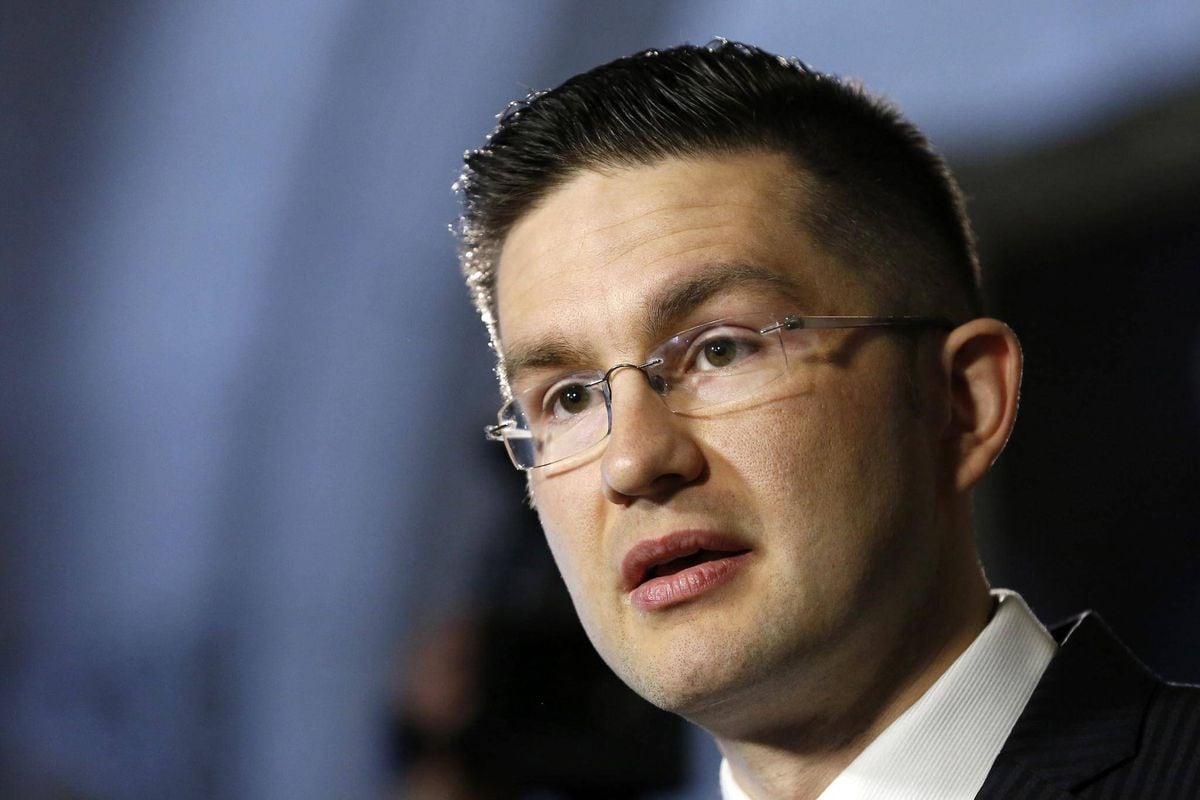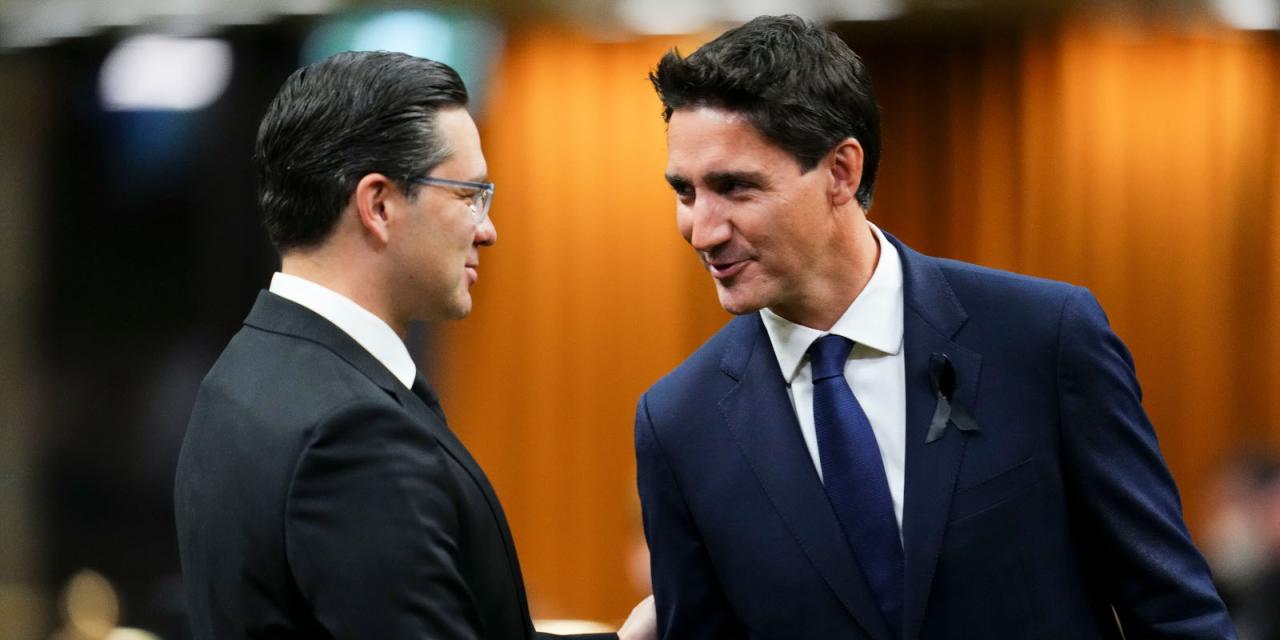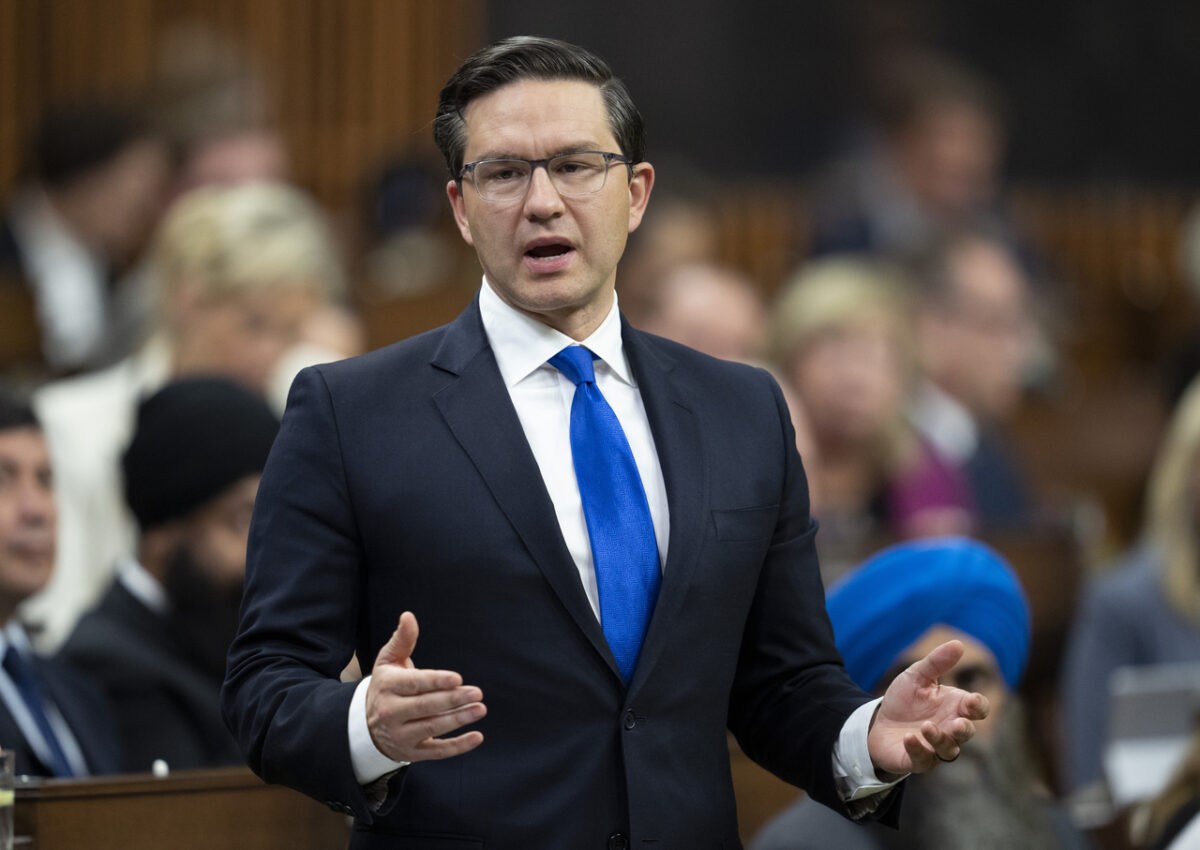Poilievre says House should be recalled as NDP vows to vote down: This high-stakes political showdown pits Conservative leader Pierre Poilievre against the NDP, creating a significant challenge for the current government. Poilievre’s call for a parliamentary recall stems from [briefly state the core issue, e.g., allegations of government misconduct or a pressing national crisis], prompting a heated debate about parliamentary procedure and the balance of power in Ottawa.
The NDP’s firm opposition, and the potential consequences of their decision, have set the stage for a dramatic political battle with far-reaching implications.
The specifics of Poilievre’s demands include [mention 1-2 key demands]. He argues that [state Poilievre’s rationale, concisely]. The NDP, however, counters that [briefly state the NDP’s counter-arguments and proposed alternatives]. This clash highlights deep divisions within the Canadian political landscape and raises crucial questions about accountability and effective governance.
Poilievre’s Call for a Recalled Parliament and the NDP’s Opposition: Poilievre Says House Should Be Recalled As NDP Vows To Vote Down
Pierre Poilievre’s recent demand for a recall of the House of Commons, met with a swift vow from the NDP to vote it down, has ignited a significant political firestorm in Canada. This situation highlights deep divisions within the Canadian political landscape and raises crucial questions about parliamentary procedure, government stability, and the responsiveness of the political system to public concerns.
The clash between Poilievre’s Conservative Party and the NDP underscores the challenges facing the current government and the potential for further political upheaval.
Poilievre’s Call for Recalling Parliament

Poilievre’s call for a recalled Parliament stems from a confluence of factors, primarily centered around dissatisfaction with the Liberal government’s handling of specific policy areas and perceived failures to address pressing national issues. His request is not merely a procedural maneuver but a strategic move to pressure the government and galvanize support within his own party. The timeline of events leading to this call is crucial to understanding its context.
The political tension is high as Poilievre pushes for a House recall, facing an almost certain defeat thanks to the NDP’s vowed opposition. It’s a stark contrast to the electrifying energy on the football field, as evidenced by this incredible play: Highlight: Derrick Henry Front Flips Into Red Zone on 13-Yard Run. The unpredictable nature of both politics and sports makes for compelling viewing, though the outcomes are far less certain in the House of Commons.
The showdown between Poilievre and the NDP remains a key political battle.
Specific reasons cited by Poilievre likely include concerns over rising inflation, the housing crisis, and perceived ineffectiveness in addressing the cost of living increases. He may have pointed to specific government policies or decisions as evidence of mismanagement. A detailed examination of his public statements and press releases would provide a more precise list of his grievances.
A likely timeline would begin with specific events that triggered Poilievre’s dissatisfaction, such as the release of specific economic data, government announcements on policy changes, or significant public reaction to a specific government action. The timeline would then progress to Poilievre’s initial statements, followed by the official request for a recall, and finally, the NDP’s response. Pinpointing precise dates requires further research into official government records and news reports.
| Event | Reason | Outcome | Significance |
|---|---|---|---|
| (Example: 2011 Federal Election) | (Example: Allegations of election irregularities) | (Example: No recall; investigation launched) | (Example: Highlighted importance of election integrity and procedural safeguards.) |
| (Example: 2008 Economic Crisis) | (Example: Urgent need for economic stimulus measures) | (Example: Parliament recalled; emergency legislation passed) | (Example: Demonstrated the ability of Parliament to respond swiftly to national crises.) |
| (Insert relevant historical example) | (Insert relevant reason) | (Insert relevant outcome) | (Insert relevant significance) |
| (Insert relevant historical example) | (Insert relevant reason) | (Insert relevant outcome) | (Insert relevant significance) |
NDP’s Vow to Vote Down the Recall, Poilievre says House should be recalled as NDP vows to vote down

The NDP’s opposition to the recall likely stems from a combination of factors, including their assessment of the urgency and validity of Poilievre’s reasons, and their overall strategic considerations within the current parliamentary context. Their rationale needs to be understood within the larger political landscape.
The potential consequences of the NDP’s vote include the reinforcement of political gridlock, the further polarization of the political climate, and the potential for a loss of public trust in the political process. It could also impact the government’s ability to pass legislation and implement its agenda. Conversely, it might solidify the NDP’s position as a responsible opposition party, focused on addressing specific issues rather than engaging in purely partisan maneuvers.
The NDP likely has alternative proposals or solutions to the issues raised by Poilievre. These might involve a focus on specific policy initiatives, collaborative efforts with other parties, or a different approach to addressing the economic challenges facing the nation. Detailing these alternatives requires an in-depth examination of NDP policy statements and official party platforms.
A hypothetical scenario illustrating the impact of the NDP’s decision could involve a situation where the government’s legislative agenda is stalled, leading to public frustration and a potential decline in approval ratings. This could also lead to increased calls for electoral reform or other changes to the parliamentary system. Conversely, the NDP’s action could solidify support among its base, leading to improved electoral prospects in the future.
Public Opinion and Reaction

Public reaction to Poilievre’s call and the NDP’s response is likely to be diverse and fragmented, reflecting the existing political divisions within the country. Analyzing public opinion requires examining diverse sources.
- Key public figures and organizations expressing their views would need to be identified and their statements analyzed. This includes statements from prominent politicians, economists, and leaders of various interest groups.
- A summary of public opinion from news articles and social media would provide a broader picture of public sentiment. This should consider the tone and framing of different media outlets.
- Different media outlets are likely to frame the story from different perspectives, reflecting their own political leanings and editorial stances. This would require comparing and contrasting the coverage from various sources.
Different perspectives on the recall debate might include: support for Poilievre’s call for accountability, opposition to what is seen as a partisan political maneuver, concerns about the potential disruption to the government’s agenda, and views on the effectiveness of parliamentary procedures.
Parliamentary Procedures and Precedents
Understanding the parliamentary procedures involved in recalling Parliament and comparing the current situation to historical precedents is crucial to assessing the legitimacy and implications of Poilievre’s request.
A step-by-step breakdown of the process, if attempted, would involve Poilievre formally requesting a recall, the Speaker’s consideration of the request, a vote in the House of Commons, and the subsequent actions (or inaction) of the government. The legal implications of the NDP’s decision are primarily related to the interpretation of parliamentary rules and precedents, as well as the potential for legal challenges to the decision.
Historical precedents involving similar situations in Canadian parliamentary history would provide context for the current events, highlighting how previous governments have handled similar requests and the outcomes of those actions. This requires research into Canadian parliamentary records and historical accounts.
Impact on Government Stability

The recall debate is likely to have significant short-term and long-term consequences for the government’s stability. Assessing the potential impact requires considering various scenarios and their implications.
Potential scenarios include a successful recall leading to a confidence vote, the government surviving a confidence vote, or the government collapsing due to a loss of confidence. Each scenario has implications for the government’s legislative agenda and ability to implement policies. The implications for upcoming legislation and government initiatives would be substantial, potentially leading to delays, cancellations, or modifications to the government’s plans.
A visual representation of the potential impact could be a simple infographic. It could have three columns: “Government Operations,” “Public Opinion,” and “Political Stability.” Each column would contain icons representing different aspects (e.g., legislative progress, approval ratings, party support) and arrows indicating the potential positive or negative impacts of the recall debate on those aspects. The size and color of the arrows would visually represent the magnitude of the impact.
The political drama surrounding Poilievre’s call for a House recall, facing certain defeat by the NDP, provides a stark contrast to the unexpected events on the sports field. While politicians grapple with votes, the Penn State opens College Football Playoff by steamrolling mistake highlights how easily unforeseen circumstances can dramatically alter outcomes. Ultimately, both scenarios demonstrate the unpredictable nature of high-stakes competition, whether in the political arena or on the gridiron.
For example, a large red arrow pointing downwards next to “Approval Ratings” would indicate a significant negative impact on public approval.
The clash between Poilievre’s demand for a parliamentary recall and the NDP’s vow to oppose it underscores the significant political tensions currently gripping Canada. The outcome will not only impact the government’s immediate agenda but also shape the trajectory of future parliamentary proceedings and public trust. The debate highlights the complexities of parliamentary procedure, the power dynamics between opposing parties, and the crucial role of public opinion in influencing political decisions.
The coming weeks will be critical in observing how this political stalemate unfolds and its lasting consequences on Canadian politics.
Clarifying Questions
What are the potential legal ramifications of the NDP’s vote?
The legal implications are complex and depend on the specific grounds for the recall request and the interpretation of parliamentary rules. There’s a possibility of legal challenges, but the likelihood and success of such challenges are uncertain.
How does this compare to previous instances of parliamentary recalls in Canada?
A detailed comparison requires analyzing past events, considering the specific reasons for each recall, and evaluating the outcomes. While parallels can be drawn, each situation possesses unique political and contextual factors.
What is the public’s overall sentiment regarding the recall?
Public opinion is divided, with varying levels of support and opposition depending on political affiliation and perspectives on the issues at hand. Polls and social media sentiment analysis offer further insight.
